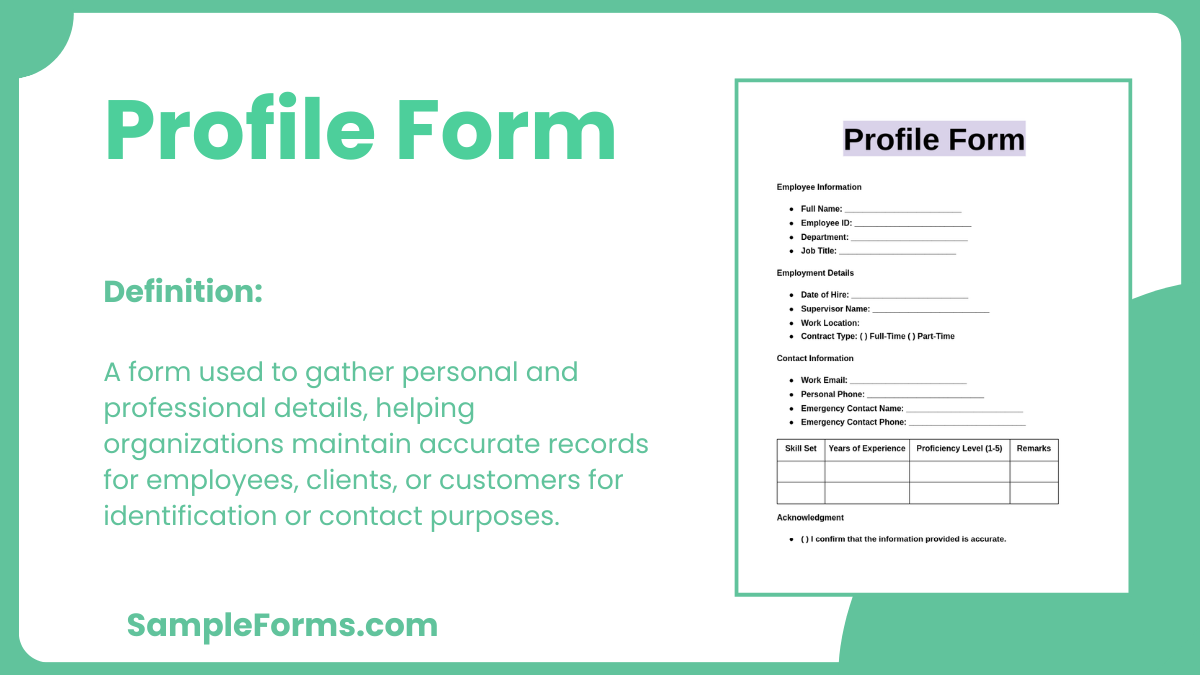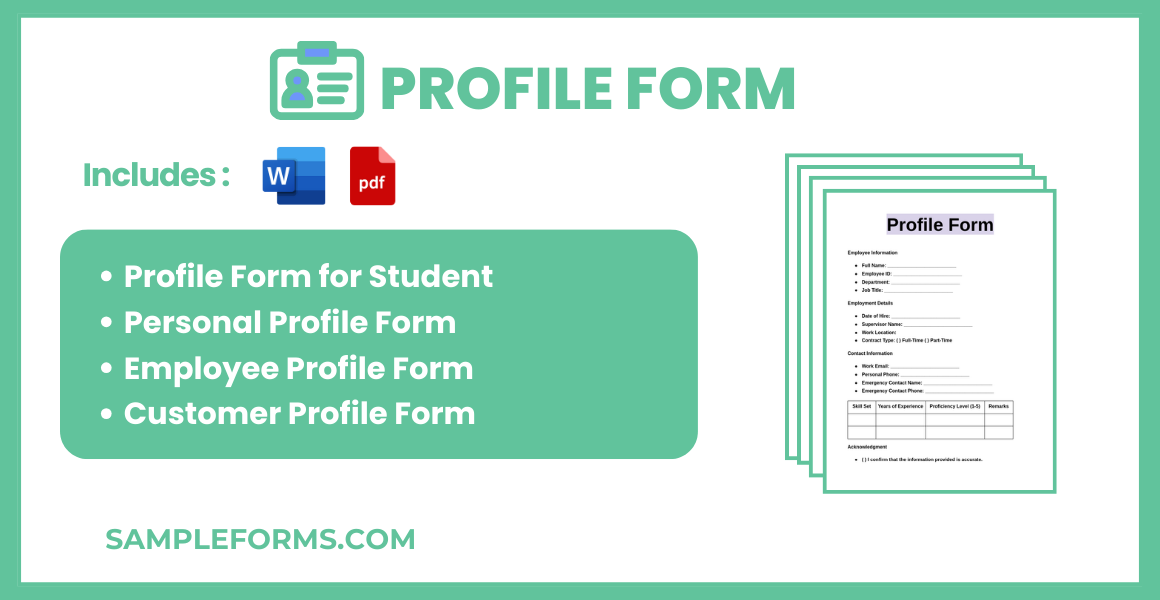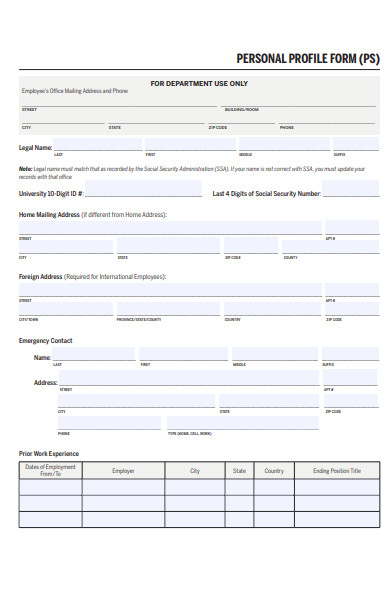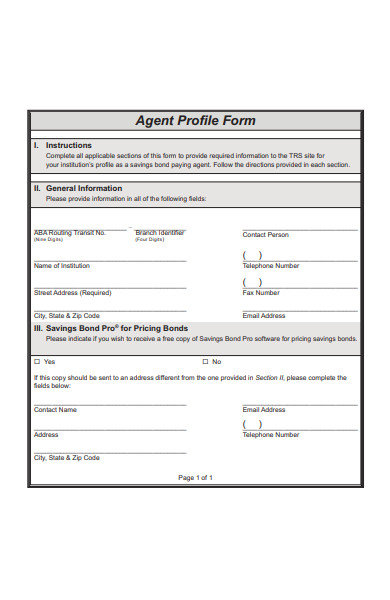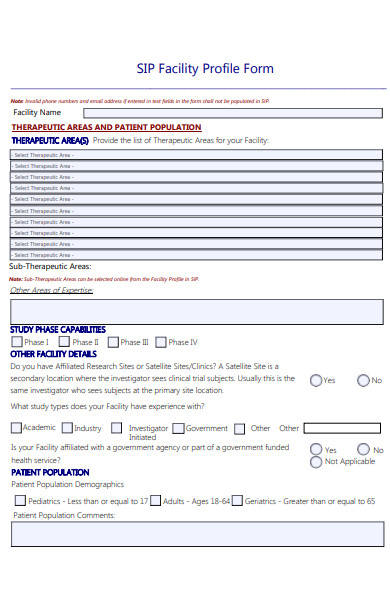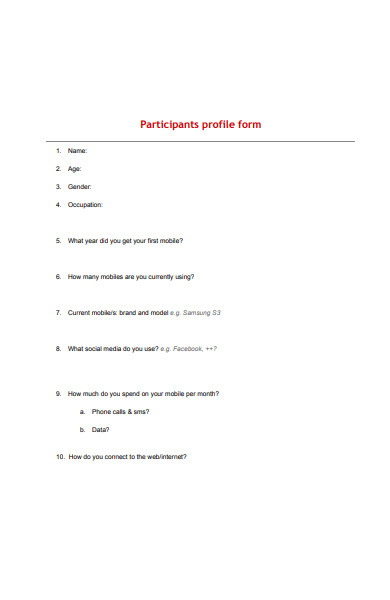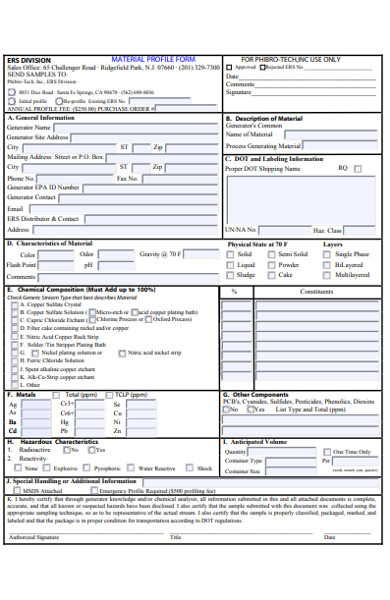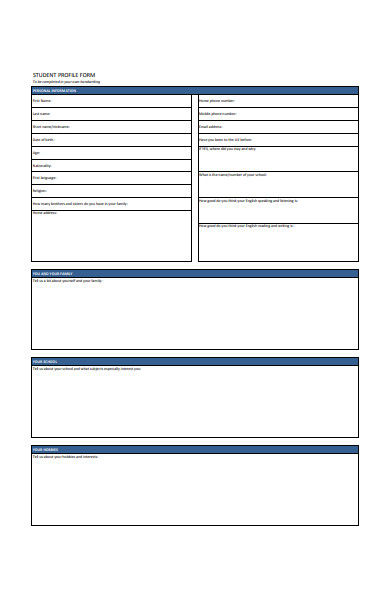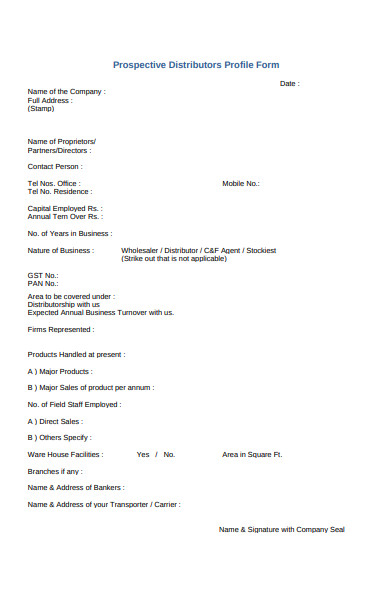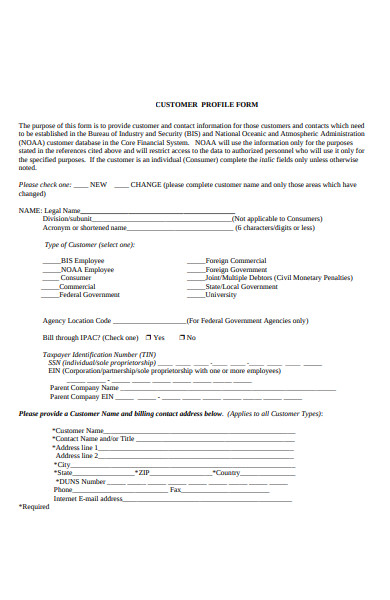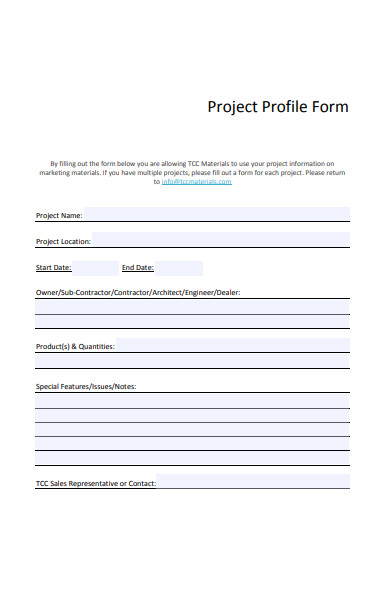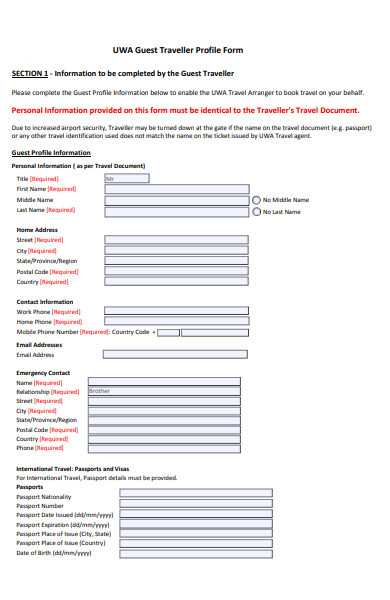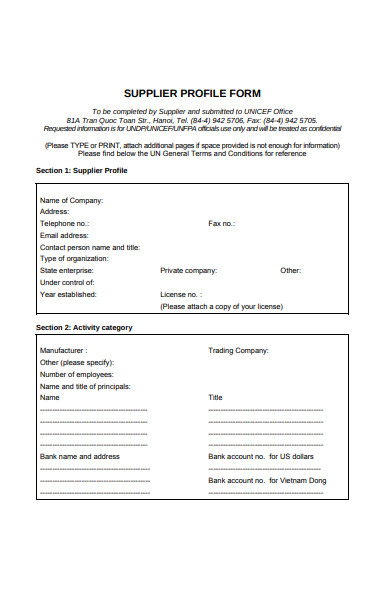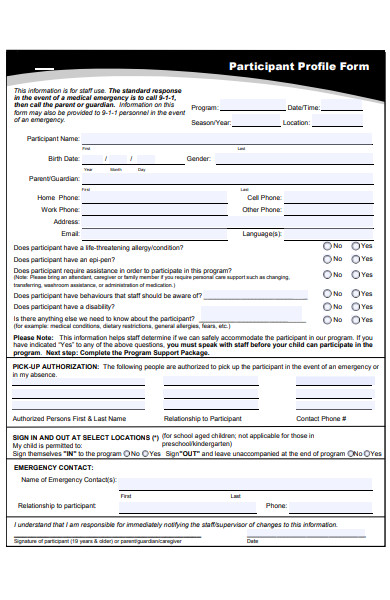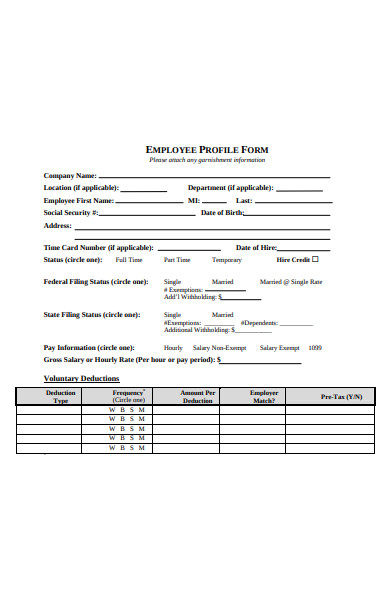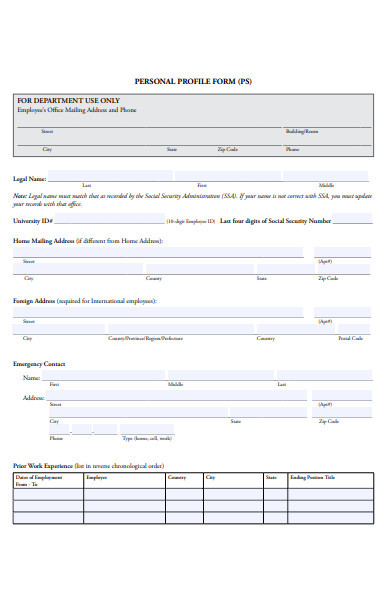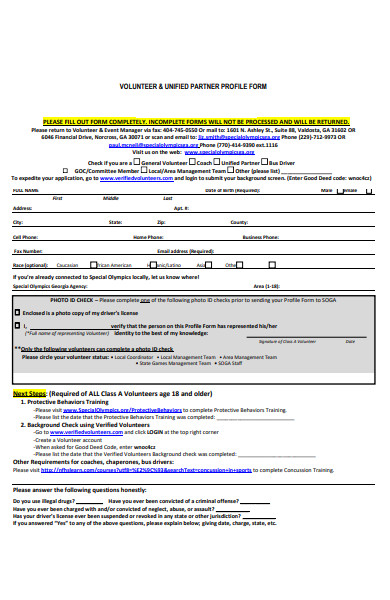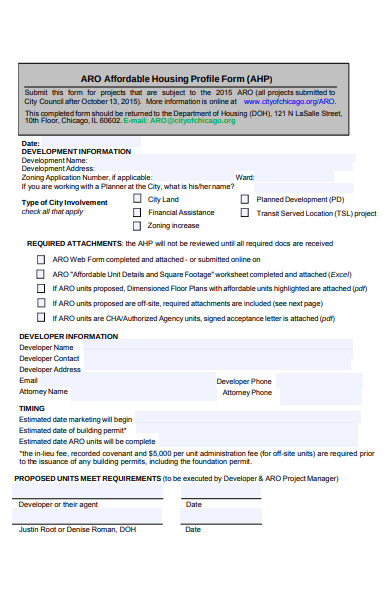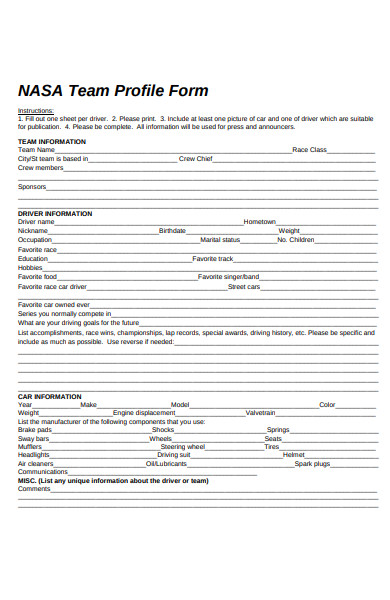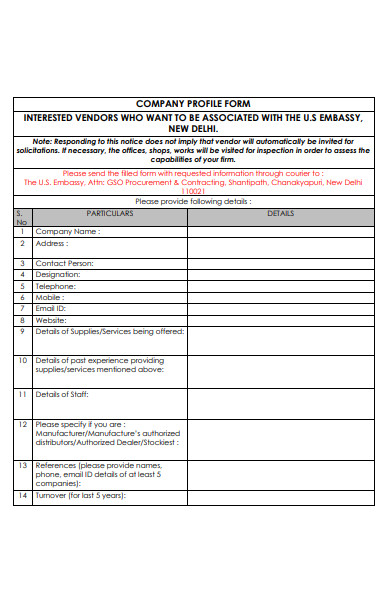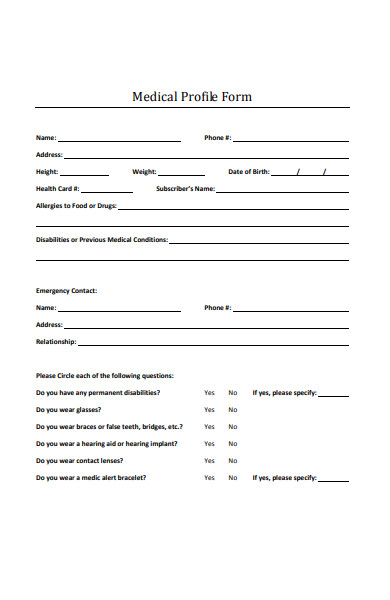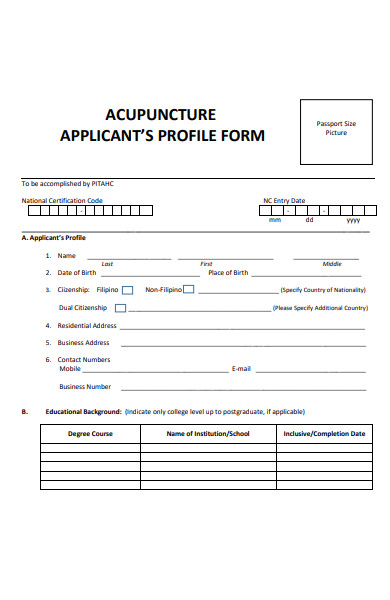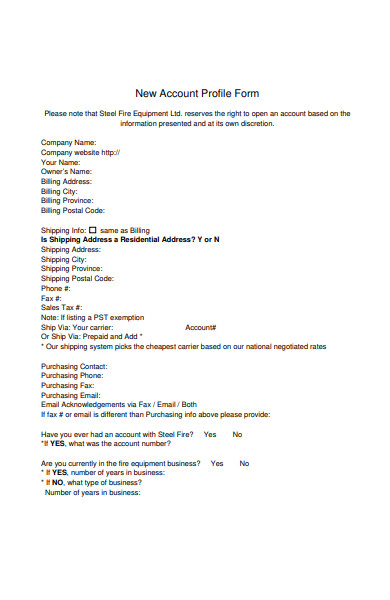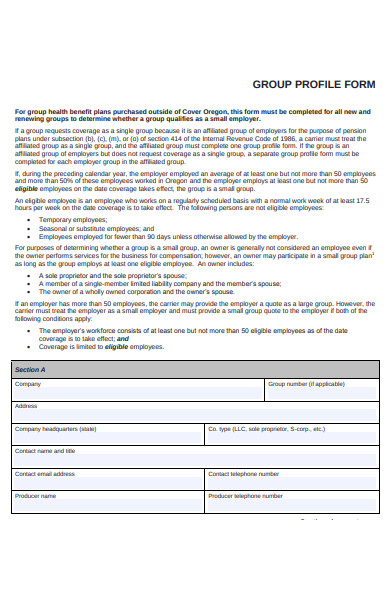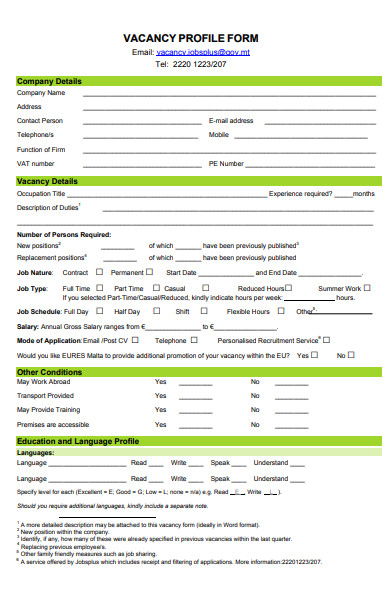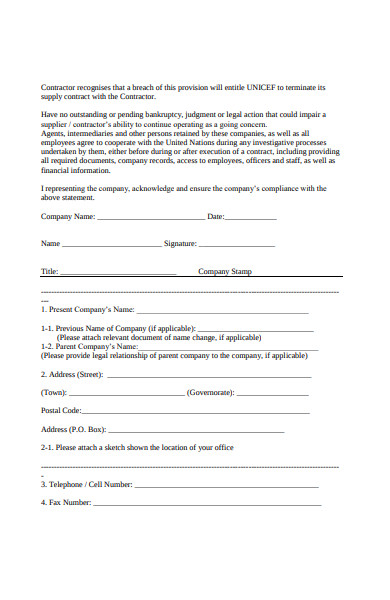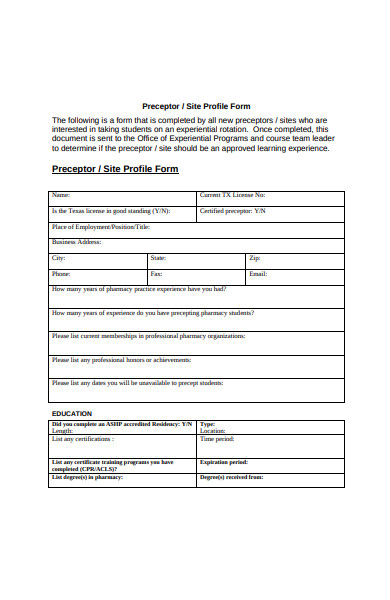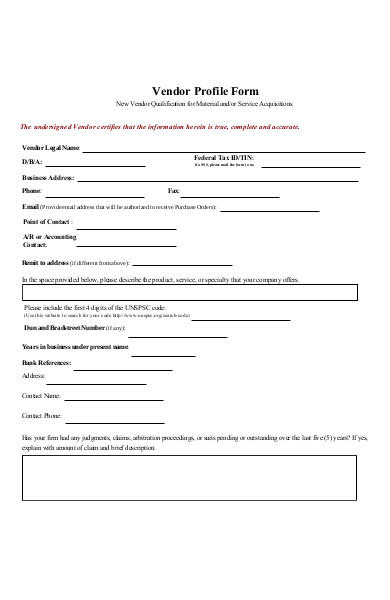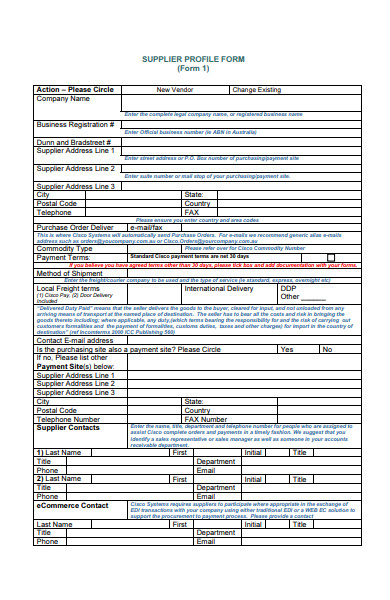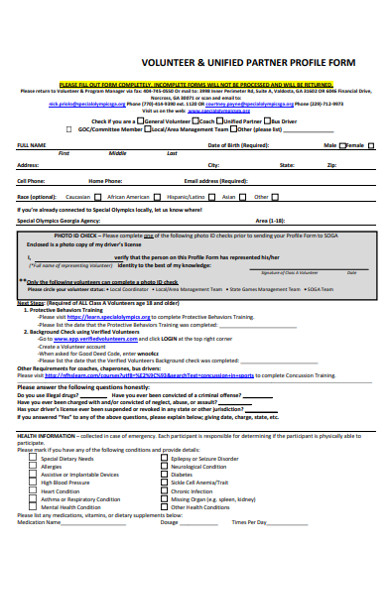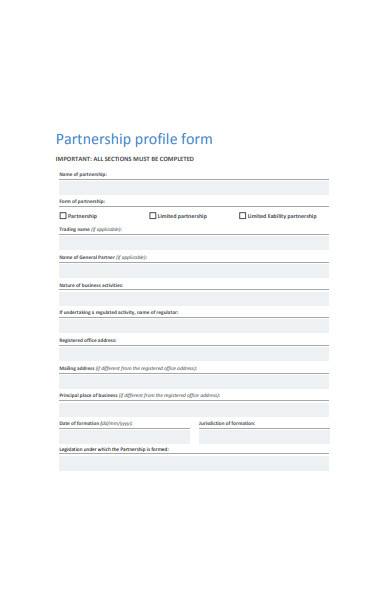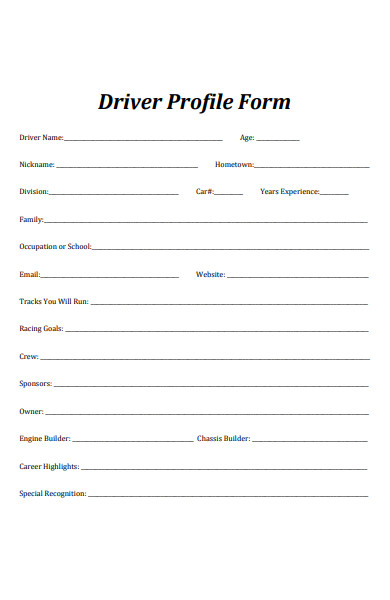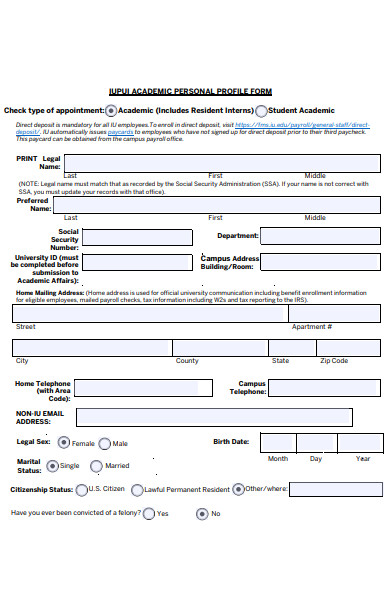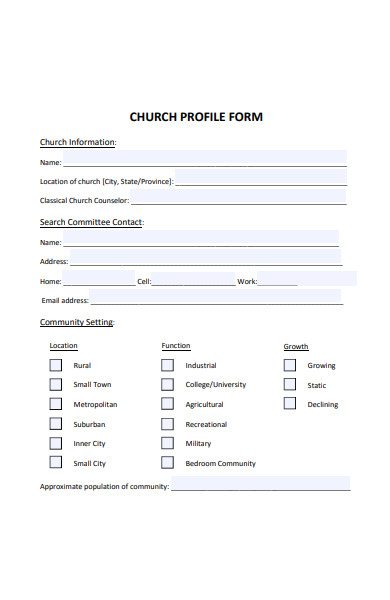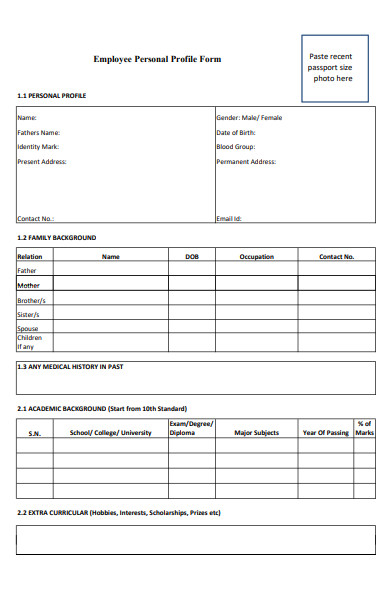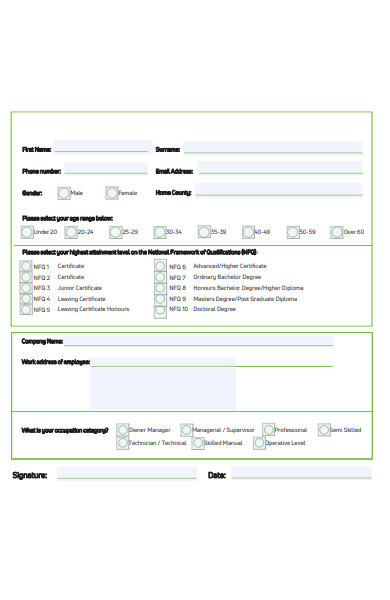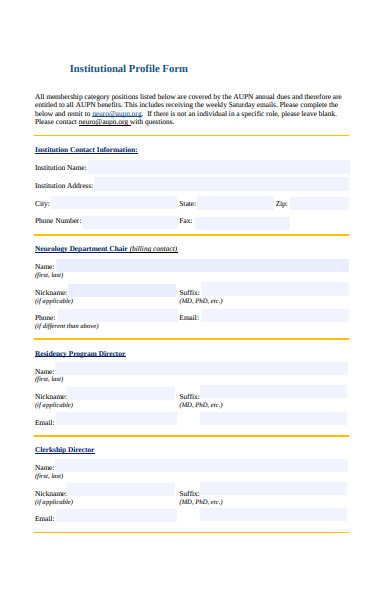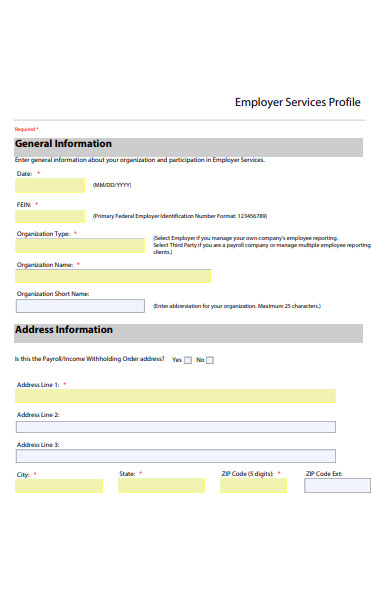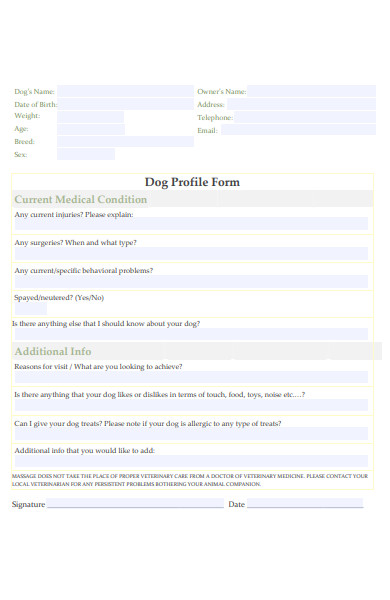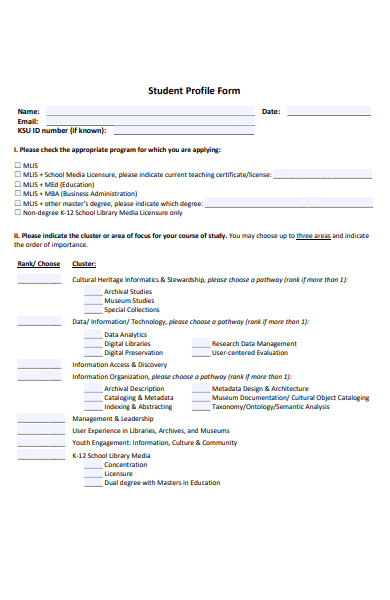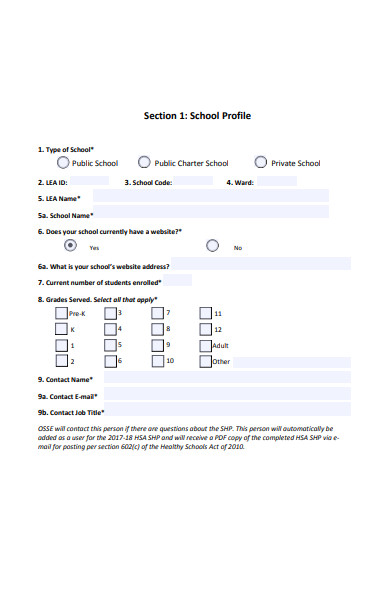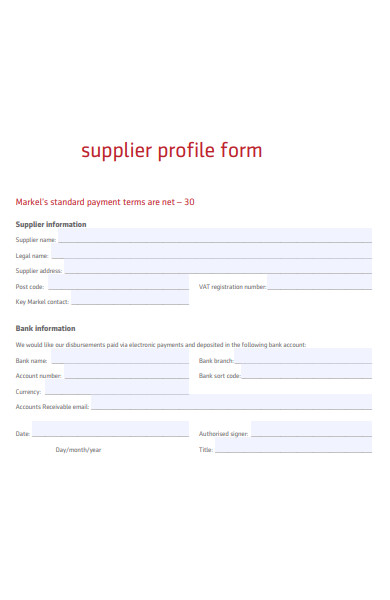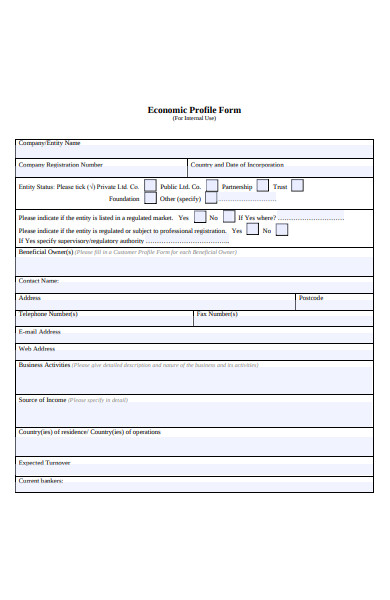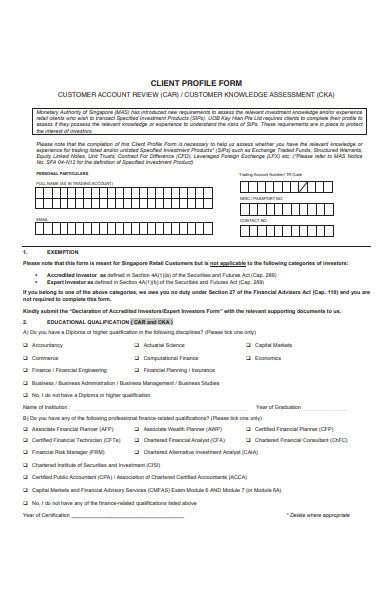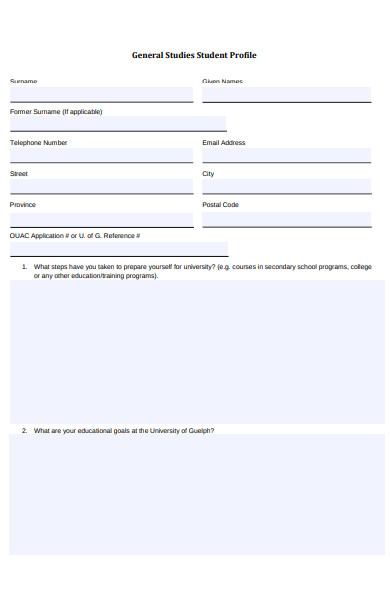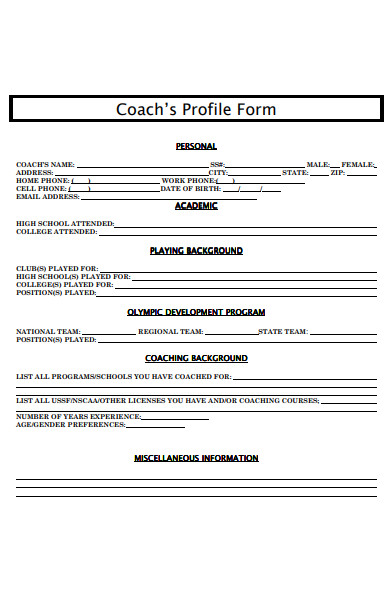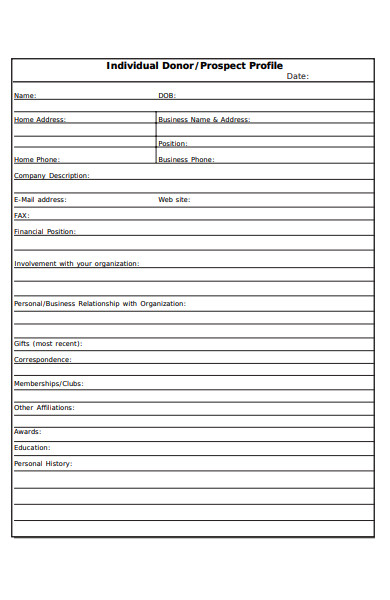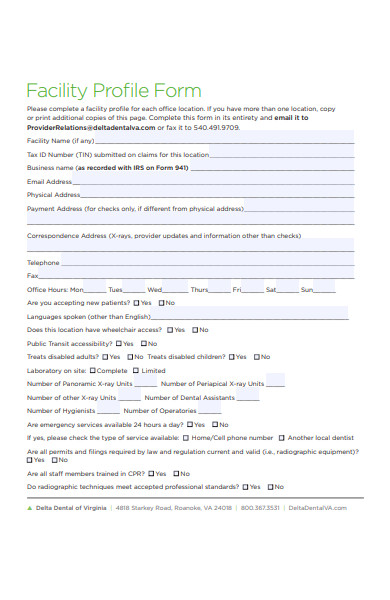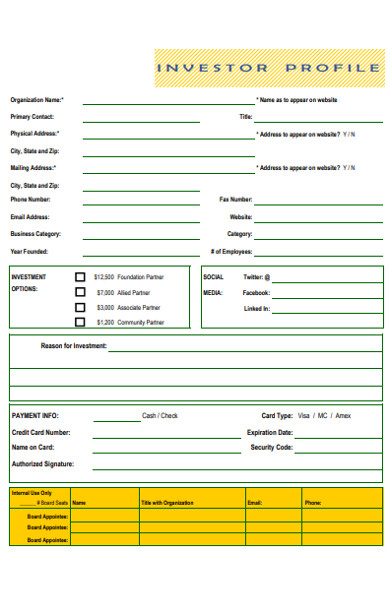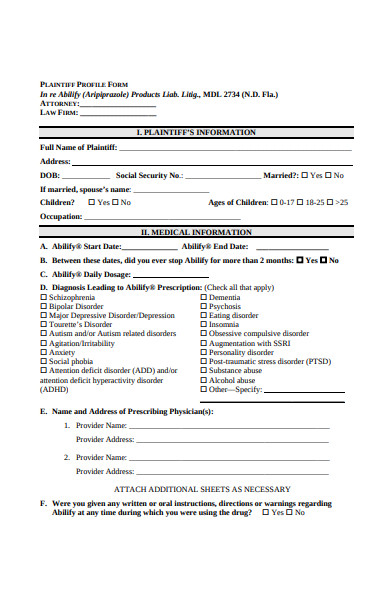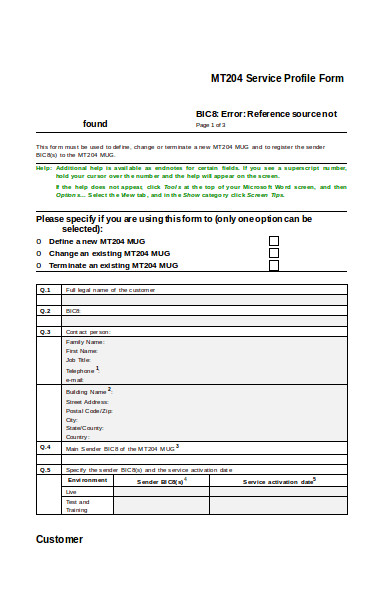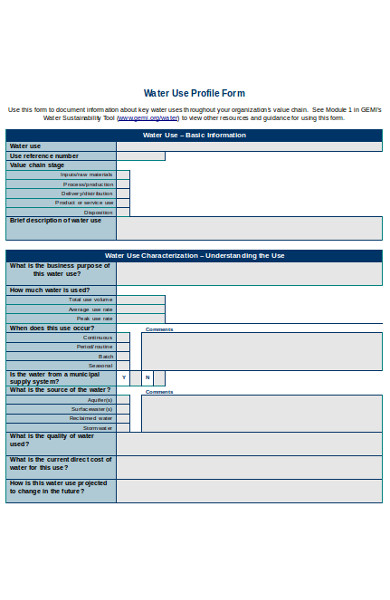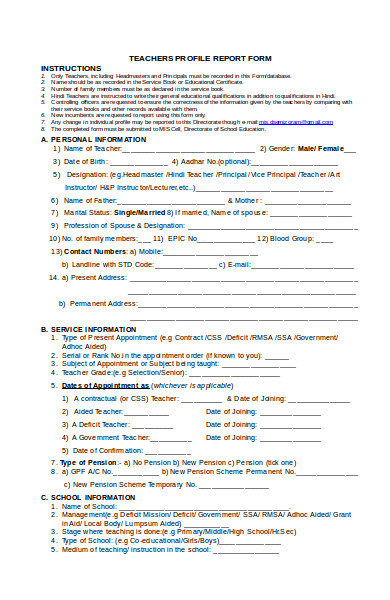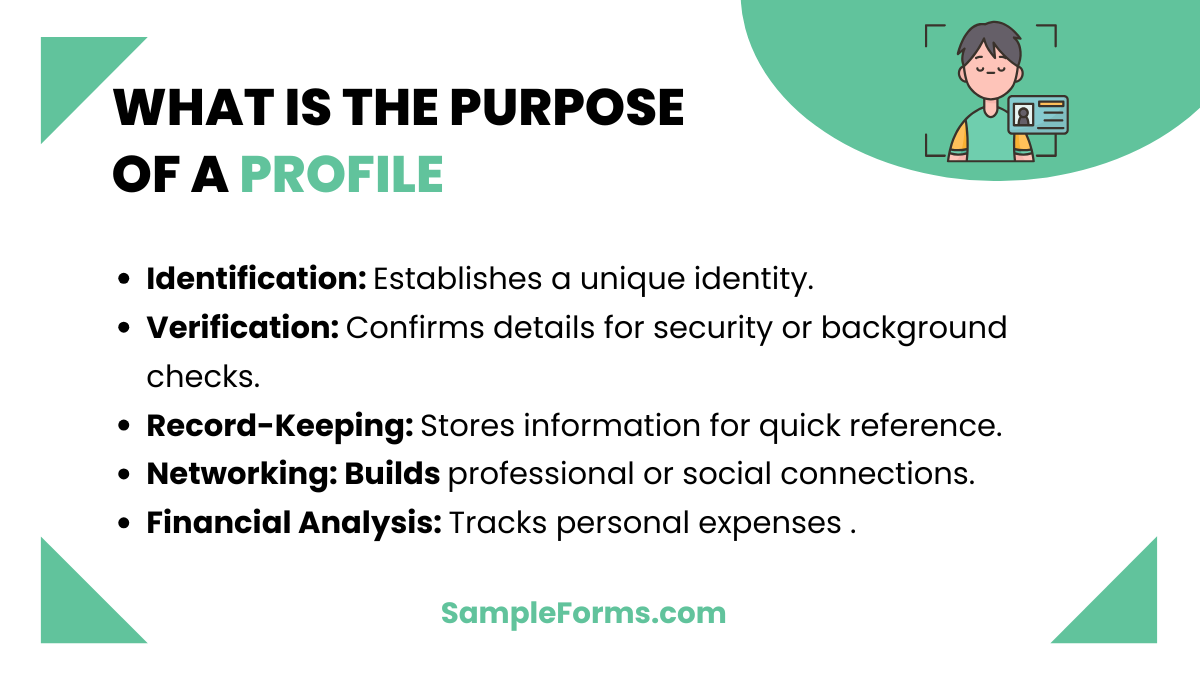A Profile Form is a crucial tool used to gather detailed personal or professional information efficiently. This guide covers everything you need to create an optimized Profile Form, including examples, tips, and best practices. Whether it’s a Bio Data Form or Information Form, a well-crafted profile form is essential for capturing accurate data that aids in decision-making processes. A thorough and structured form simplifies information collection and ensures consistency across various applications. By following the strategies outlined here, you can create effective forms that align with your specific needs.
What is Profile Form?
A Profile Form is a structured document used to collect comprehensive information about an individual, including personal, educational, and professional details. It serves as a tool to streamline data collection, making it easier for organizations or institutions to access accurate information quickly. This form is widely used in job applications, customer registrations, and educational institutions for maintaining records.
Profile Format
Heading: Personal Profile Information
1. Personal Information
- Name: Enter your full legal name.
- Date of Birth: Provide your birth date (DD/MM/YYYY).
- Gender: Specify your gender (Male/Female/Non-binary).
- Nationality: State your nationality.
- Marital Status: Single/Married/Other.
2. Contact Details
- Residential Address: Provide your complete address with postal code.
- Contact Number: Include your mobile number with country code.
- Email Address: Provide a valid and frequently used email.
3. Educational Background
- Highest Qualification: List your highest degree or diploma.
- Institution Name: Specify the name of the university.
- Year of Graduation: State the year of completion.
4. Employment Details
- Current Job Title: Enter your current position.
- Company Name: Provide the name of your employer.
- Years of Experience: State your total professional experience.
5. Emergency Contact
- Emergency Contact Name: Provide the name to contact in emergencies.
- Relationship: Specify the relationship (e.g., spouse, parent).
- Phone Number: Include their contact details.
Profile Form for Student
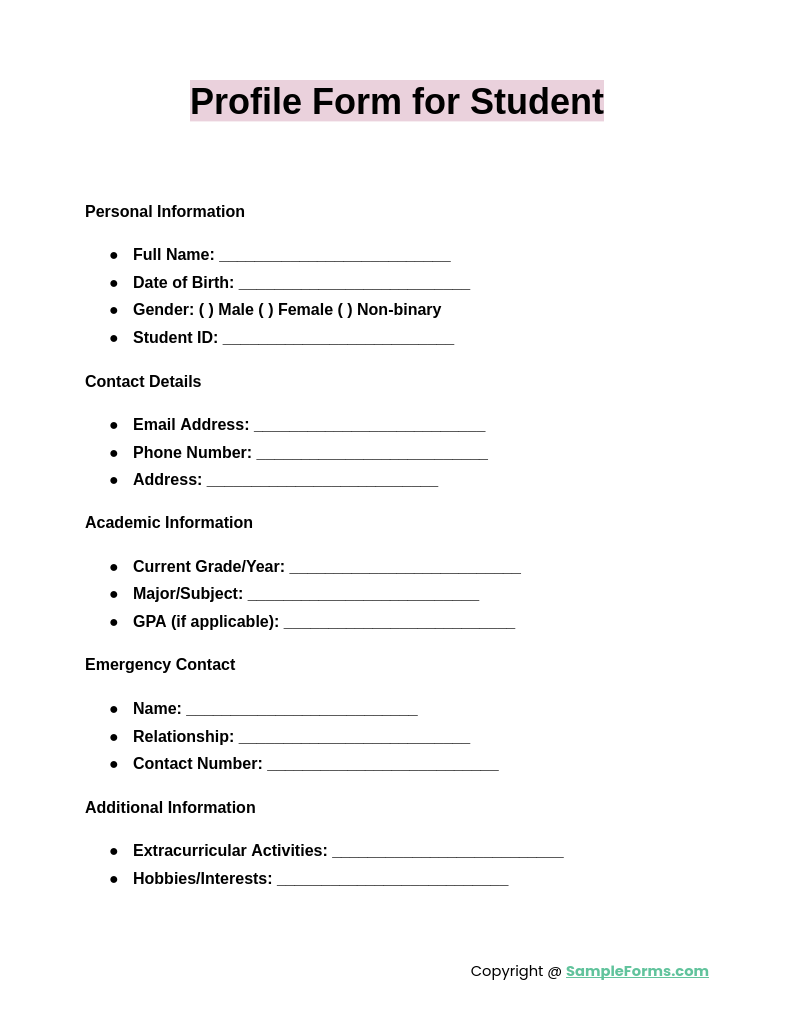
A profile form for students collects detailed information, including academic history, extracurricular activities, and personal interests. It helps educational institutions maintain comprehensive records for better student engagement. This form typically includes fields for contact details, emergency contacts, and other essential information. By integrating elements from an Employee Bio Data Form, this form can also assist in internships and job placements post-graduation, bridging the gap between academics and professional life.
Personal Profile Form
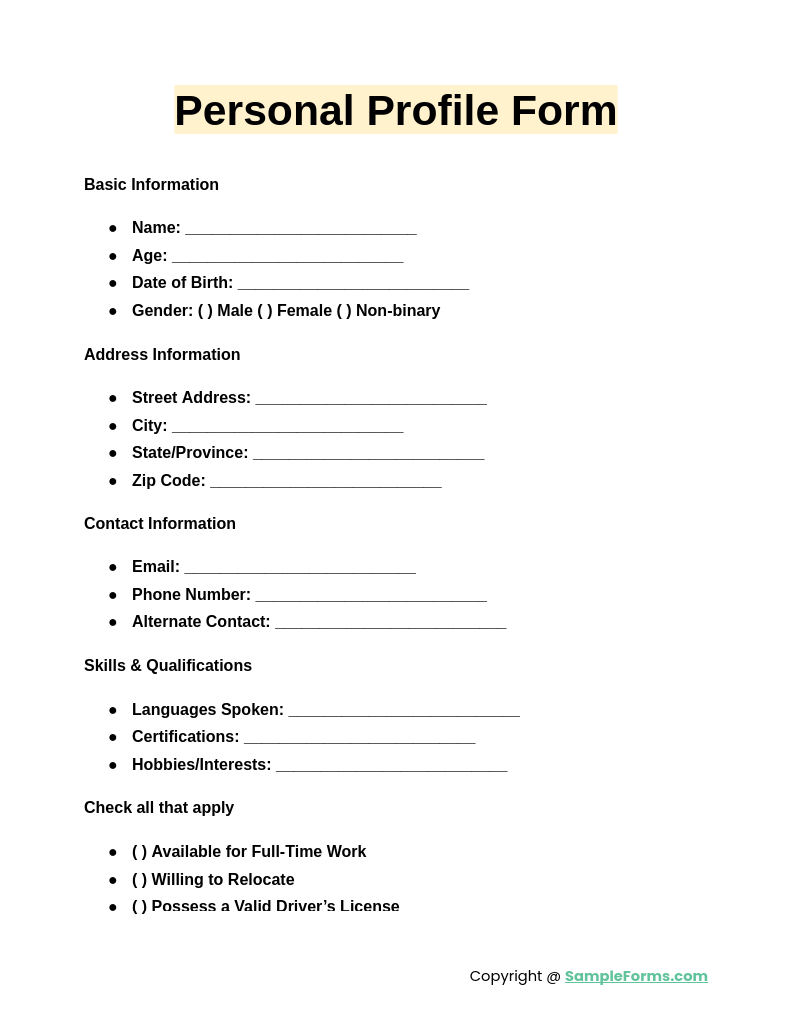
A personal profile form is designed to collect individual information for various purposes, such as job applications, social networking, or professional platforms. It focuses on gathering personal details, including contact information, skills, hobbies, and career objectives. In specific situations, elements from a Job Safety Analysis Form may be incorporated to highlight specific skills or safety certifications, especially for jobs requiring a detailed personal profile. This type of form helps present a comprehensive overview of an individual’s qualifications and character.
Employee Profile Form
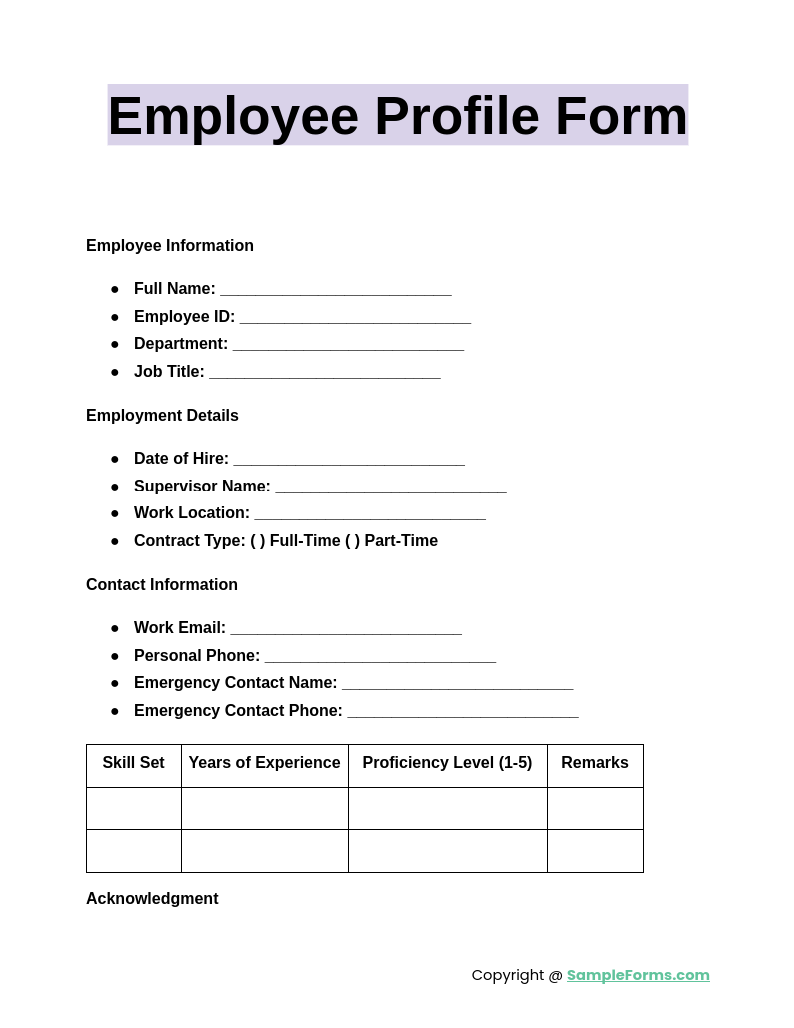
An employee profile form is crucial for HR departments to document employees’ essential details, such as employment history, skills, and performance reviews. This form is often used to track career progress, training needs, and departmental assignments. Integrating components from a Job Analysis Form, it provides insights into employees’ roles, aligning them with company goals. The form is particularly effective for managing performance evaluations and career development, ensuring that the organization has a clear understanding of its workforce’s capabilities.
Customer Profile Form
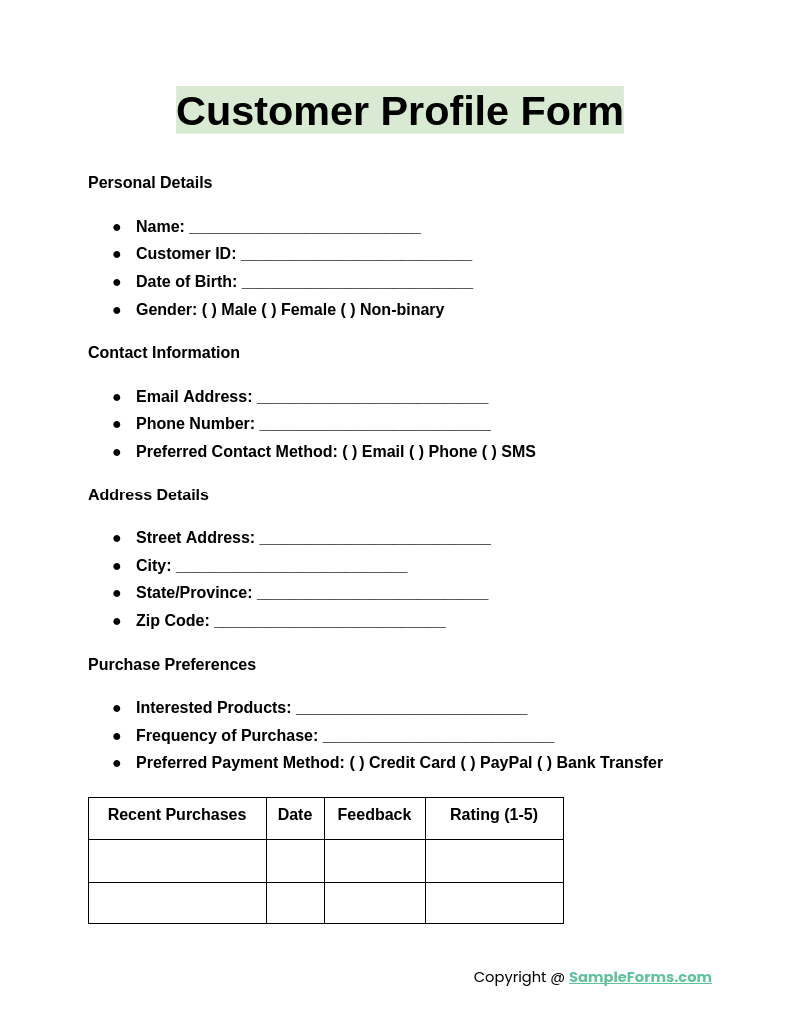
A customer profile form collects data about clients, helping businesses understand their demographics, preferences, and purchasing behavior. This information is essential for targeted marketing, enhancing customer satisfaction, and improving service quality. The form typically includes fields for contact information, purchase history, and customer preferences. In some cases, it might also integrate a Character Reference to verify customer credibility, especially in high-value transactions or long-term contracts. Utilizing such forms aids companies in tailoring their products and services to meet client needs more effectively.
Browse More Profile Forms
What is profile process?
The profile process involves collecting, organizing, and updating personal or professional data to create a structured overview for record-keeping or digital identification.
Adhering to specific rules ensures that profiles are created accurately:
- Data Collection: Collect detailed information from individuals to verify identity and credibility.
- Data Verification: Review collected data for accuracy using reliable sources and documentation.
- Profile Creation: Fill in necessary details within a Product Information Form to summarize key information succinctly.
- Approval Process: Get necessary approvals from relevant authorities before making the profile official.
- Regular Updates: Update profiles periodically to include recent changes or new data.
How to create a user profile?
Creating a user profile requires gathering personal data, validating its accuracy, and organizing it systematically for easy access.
Key steps include:
- Initial Setup: Start with a basic Employment Information Form to gather essential details.
- Verification: Ensure data accuracy by cross-referencing with existing records.
- Profile Fields: Include fields like name, contact information, and address for completeness.
- Security Measures: Protect sensitive data using encryption and secure storage.
- Personalization: Customize the profile to reflect individual preferences.
What should a profile include?
A comprehensive profile should include essential details, contact information, and specific preferences relevant to the purpose of the profile.
Key elements include:
- Basic Information: Full name, date of birth, and contact details.
- Professional Details: Skills, qualifications, and job experiences.
- Personal Expenses: Include relevant data for financial profiles.
- Statements: Add a Statement to reflect goals and objectives.
- Guarantees: Include a Personal Guarantee Form if needed for credibility.
What are the types of profile?
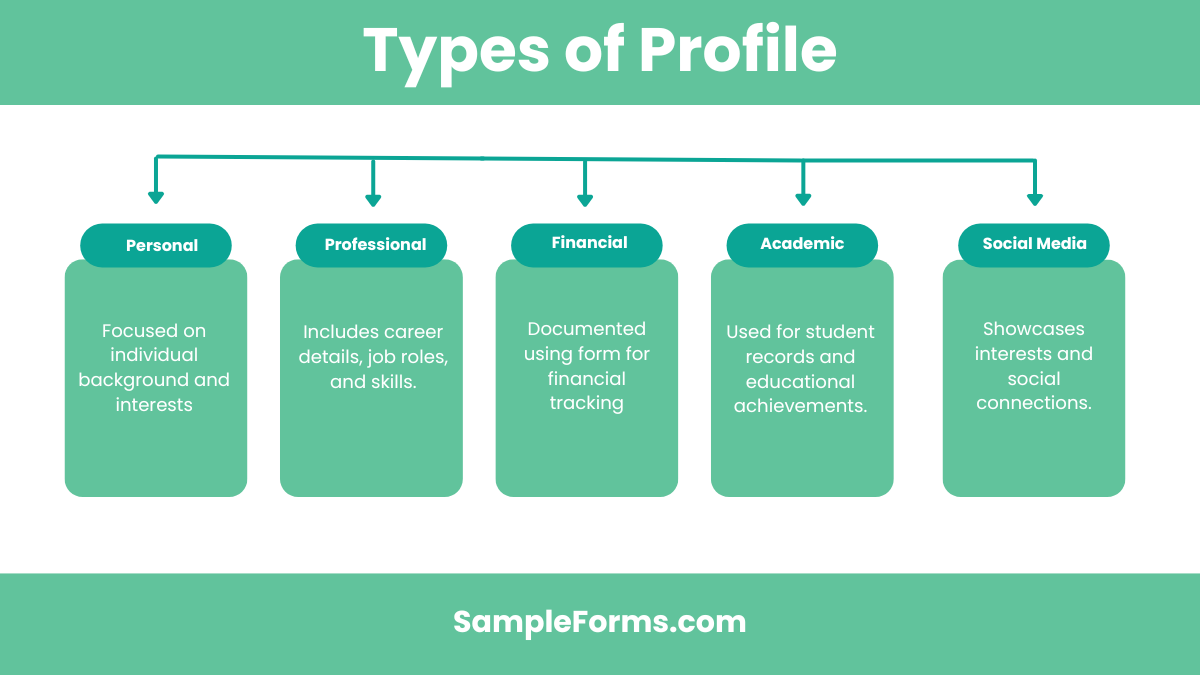
Profiles are categorized based on their purpose, such as personal, professional, financial, or social profiles.
Types include:
- Personal Profile: Focused on individual background and interests.
- Professional Profile: Includes career details, job roles, and skills.
- Financial Profile: Documented using a Personal Financial Statement Form for financial tracking.
- Academic Profile: Used for student records and educational achievements.
- Social Media Profile: Showcases interests and social connections.
What is the purpose of a profile?
The primary purpose of a profile is to document and organize information for identification, verification, or personal branding.
Main purposes:
- Identification: Establishes a unique identity using a Personal Form.
- Verification: Confirms details for security or background checks.
- Record-Keeping: Stores information for quick reference.
- Networking: Builds professional or social connections.
- Financial Analysis: Tracks personal expenses through a Personal Expense Form.
What is profile forming?
Profile forming involves creating structured data for individuals or entities using forms like Contact Information Form to ensure accurate information capture and streamlined documentation.
What is an employee profile form?
An employee profile form is used to collect essential details like skills, experience, and contact info. It also includes an Employee Personal Information Form for HR purposes.
What is the army profile form?
An army profile form documents a soldier’s medical or fitness status, often accompanied by a Medical Information Form to assess health conditions affecting duties.
Who can see a Soldiers profile?
Access to a soldier’s profile is restricted to authorized personnel, ensuring confidentiality while using forms like Release of Information Form only when necessary.
How do I get a military profile?
To obtain a military profile, complete the necessary forms, often starting with a Patient Information Form for health assessments and official authorization.
What form is a profile in the Army?
In the army, a profile is documented using forms like the Statement of Information Form to detail a soldier’s fitness, medical status, and job limitations.
How to write a brief personal profile?
Writing a brief personal profile involves summarizing key information concisely, often utilizing a Customer Information Form to capture relevant details effectively.
What do you need in a personal profile?
A comprehensive personal profile includes full name, contact details, professional background, and interests, utilizing a Real Estate Client Information Form for more specific fields.
What does an employee profile look like?
An employee profile contains contact information, skills, job history, and performance reviews, with sections similar to those in a Vendor Information Form for comprehensive data capture.
What does it mean to profile a document?
Profiling a document means organizing and summarizing information systematically, often with the aid of an Information Request Form to gather detailed data.
A well-designed Profile Form is essential for efficiently capturing detailed information. Whether you’re using it for employee onboarding, student registration, or customer profiling, having an optimized format ensures data accuracy and saves time. Utilizing tools like Bio Data Forms and Information Forms can help streamline data collection and improve organizational workflows.
Related Posts
FREE 11+ Supplier Questionnaire Forms in PDF
FREE 32+ Vendor Forms in PDF MS Word | Excel
FREE 15+ Credit Application Forms in PDF
FREE 10+ Restaurant Waste/Wastage Forms in PDF MS Word | Excel
FREE 10+ Sample Generic Job Application Forms in PDF MS Word ...
FREE 31+ Simple Job Application Forms in PDF MS Word
FREE 11+ Sample Supplier Questionnaire Forms in MS Word PDF
FREE 9+ Property Information Forms in PDF MS Word
FREE 42+ Personal Forms in PDF MS Word | Excel
FREE 49+ Employment Forms in PDF MS Word
FREE 50+ Contact Forms in PDF MS Word | Excel
FREE 8+ Sample Driver Assessment Forms in PDF MS Word
FREE 35+ Sample Registration Forms in MS Word
FREE 8+ Sample Patient Counseling Forms in PDF MS Word
FREE 6+ Sample Investor Questionnaire Forms in MS Word PDF
